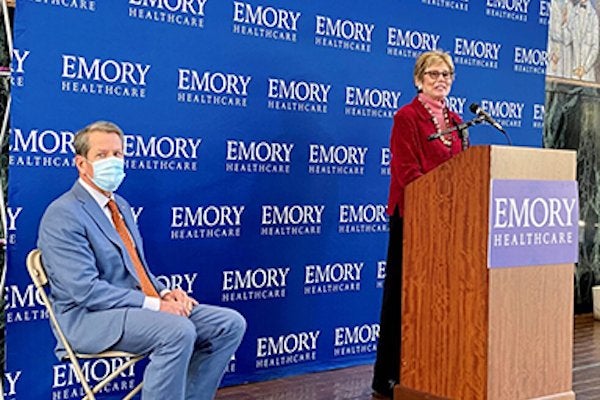Georgia officials battling the COVID-19 pandemic are hoping for a shot in the arm to the state’s vaccine rollout when President-elect Joe Biden takes office on Wednesday.
COVID-19 vaccine shipments to Georgia are currently hovering around 80,000 per week, far short of the millions of doses needed for the state to achieve herd immunity, said Georgia Public Health Commissioner Dr. Kathleen Toomey.
Toomey told state lawmakers at a budget hearing Tuesday the incoming Biden administration has made “a promise of additional vaccine” that could boost supplies, but those numbers will not be known until after Wednesday’s inauguration.
[adrotate banner=”29″]
“We literally don’t know week-to-week what our allocation will be,” Toomey said. “There’s some disconnect between what we were told was coming and what actually is available.”
Biden has pledged to distribute 100 million vaccine doses by May. Health experts expect vaccines to be widely available to the public sometime over the summer. Georgia officials including Gov. Brian Kemp are aiming to vaccinate all nursing-home residents and staff by the end of this month.
Around 451,000 vaccines had been administered in Georgia to hospital workers, nursing home residents and staff and people ages 65 and older as of Monday morning, Toomey said. That marked less than half of doses local health providers and pharmacies had received so far from the federal government.
Toomey also noted just 30 percent of Georgia’s nursing home residents and staff have been vaccinated, leaving many thousands of the state’s most vulnerable people at risk of infection and death as the highly contagious virus continues spiking after winter holiday outbreaks.
Nearly 700,000 positive COVID-19 cases were confirmed in Georgia as of Sunday afternoon, with huge increases seen since November that culminated in a record-high 10,389 new cases reported on Jan. 8, according to state Department of Public Health data. The virus has killed more than 11,000 Georgians.
While state officials are now setting up mass vaccination sites and better systems for eligible Georgians to schedule appointments, Toomey said the only way to halt the virus’ spread will be for state to receive more vaccines.
[adrotate banner=”22″]
“At the rate we’re going, it’s going to take many, many months,” Toomey said. “We really need to be able to do these big vaccination sites, and we hope that will happen soon with the availability of more vaccine.”
Toomey was the first agency head to kick off three days of General Assembly hearings aimed at finalizing the state’s budget through fiscal 2022, which starts July 1. Kemp’s budget proposals released last week avoid the deep spending cuts state agencies were forced to swallow last year amid the pandemic.
The state Department of Public Health has not asked state lawmakers to approve spending increases this year since the federal government pays for more than half of its roughly $690 million budget.
The agency has also been awarded more than $1 billion in COVID-19 relief as of mid-January to pay for testing and vaccines, though Toomey said the roughly $110 million in emergency aid meant specifically for vaccinating Georgians is not enough.
Toomey told lawmakers Tuesday the COVID-19 fight has taken a toll on her agency’s morale, particularly due to criticism public-health workers have faced on social media over the slow vaccine rollout and high infection rates.
“We so seldom get thanked for the work we’re doing 24-7,” Toomey said. “Money is important … but even more than money, a thank you for what they’ve been through.”
[adrotate banner=”35″]











